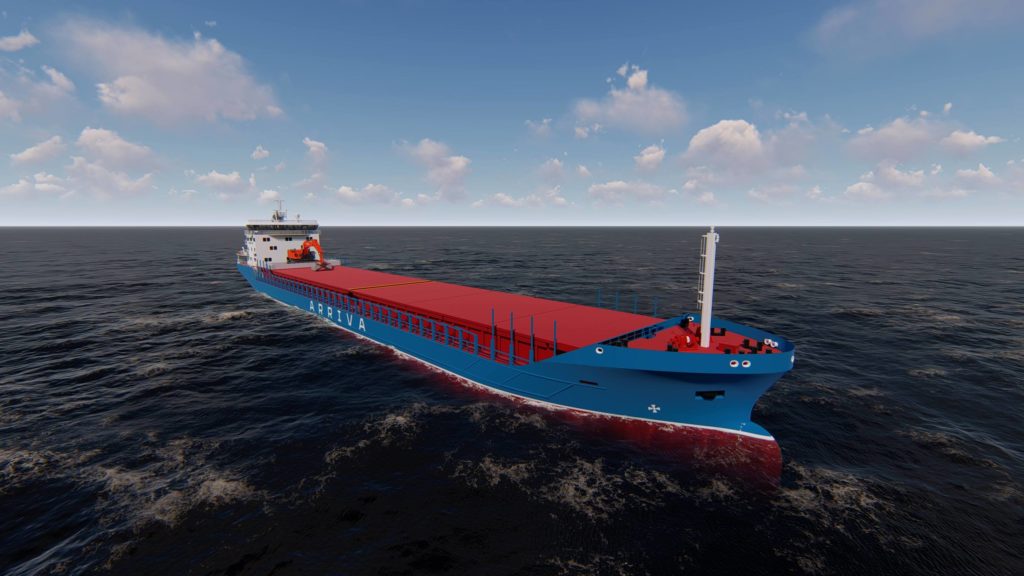Corvus Energy announced on Thursday (Mar12) that the Company has been selected by Westcon Power & Automation for the supply of Lithium Ion battery-based energy storage system (ESS) for a new hybrid coastal cargo vessel being built for Arriva Shipping at Dayang Offshore Equipment in China.

The ship is of MDC 1309 Ecolution design made by Marine Design and Consulting (MDC) in Bergen and contributes to a whole new standard for this type of ship. Energy efficiency is taken into account throughout the entire design phase. In addition to the large battery pack and electric propulsion, it will also have a fuel-efficient and improved hull design.
The 1500 kWh Orca Energy battery pack will enable the vessel to enter the harbor areas, berth/unberth, and sail – all emission-free. In addition, the vessel’s cargo operations will also be handled electrically and consequently emission-free.
“It is an honor to again be working with Westcon Power & Automation for this innovative project”, says Halvard Hauso Chief Commercial Officer at Corvus Energy. “WPA is highly skilled and experienced electrical system integrators and our close partnership with them in designing and delivering these innovative solutions is key to accelerating the adoption of energy storage systems.”
Utilizing energy storage will enable the shipowner to reduce the carbon footprint of their operations substantially. Fuel consumption is estimated to be reduced by 20% compared to existing ships without hybrid technology. This corresponds to cuts of around 400 tonnes of fuel and about 1200 tonnes of CO2, which equals the emissions from 450 passenger cars.
“This project is a milestone for Westcon Power & Automation as it is first of its kind. A key to succeed is close collaboration and reliable partners. Through the past years we have worked on numerous successful hybrid and all-electric vessels with the team in Corvus which is why we awarded them the contract also for this project” says Gunvald Mortvedt, Managing Director Westcon Power & Automation
The vessel will be delivered from the yard in the second half of 2020 for completion in Norway before it will operate in the “self-loading/discharging” segment routes in Northern Europe.
Source: Corvus